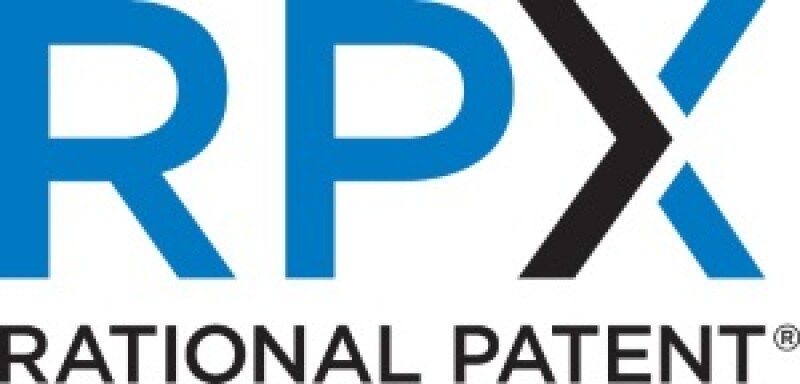Also on the blog this week:
Sponsored statement: Foreign patent filing guides released
All the news and photos from Awards season
PTAB, utility models and patent rankings - highlights from the March issue
Latest IP developments in Turkey
In our news and analysis:
Venue Act introduced in US Senate to change patent venue law
EPO’s Admin Council chair expects action by June
Managing IP North America Awards 2016: The winners
Trade mark cases in Germany: colours, sweets and animals have their day in court
Bacardi files amended complaint in Havana Club trade mark dispute
How to make sure your patent is properly supported in China
Interview: Brenda Panichi, lead IP counsel APAC, Syngenta
EPO's Admin Council meets amid demonstration and strike threats
UK Supreme Court finds against Trunki in design case
Managing IP Global Awards 2016: the winners
Ninth Circuit rejigs Dancing Baby
The Ninth Circuit last week amended its opinion in the closely-watched “Dancing Baby” case, as well as denying both parties’ requests for a rehearing.

The amended order kept the affirmance of the district court’s denial of cross motions for summary judgment relating to the propriety of Universal Music’s takedown notice under the DMCA, but the opinion and dissent differed from the original in a number of respects.
The Ninth Circuit held that copyright holders are required to consider fair use before sending a takedown notice. But the amended opinion removed a statement that failure to consider fair use “raises a triable issue as to whether the copyright holder formed a subjective good faith belief that the use was not authorised by law”.
A WilmerHale analysis noted: “In a footnote, the panel majority explained that ‘under the circumstances of this case’ the relevant question – of whether Universal’s inquiry was sufficient to form a subjective good faith belief that Lenz's video infringed Prince's copyright – was appropriate for the jury, rather than the court.”
The court also eliminated a passage discussing the nature of the fair-use inquiry that a copyright holder must conduct to satisfy the good faith belief requirement. WilmerHale noted the deleted language included the following statements:
"a copyright holder's consideration of fair use need not be searching or intensive;"
"formation of a subjective good faith belief does not require investigation of the allegedly infringing content;"
"the implementation of computer algorithms appears to be a valid and good faith middle ground for processing a plethora of content while still meeting the DMCA's requirements to somehow consider fair use;" and
"additional discussion of potentially sufficient algorithms and screening procedures."
Dorsey & Whitney’s Michael Keyes noted the amended opinion raises a number of questions.
“What does this removal mean for the Dancing Baby Doctrine?” he said in an analysis. “As for the ‘searching or intensive’ language, it’s probably fair to say that the Court believed this proviso made its ‘fair use’ holding too narrow. Its removal also provides less clarity as to how much consideration must be given to the fair use defence by the copyright holder before issuing a take down notice. As for the removal of the language regarding ‘implementation of algorithms,’ this, too, is significant. Under the prior decision, the Court appeared to be conceptually on board with content owners harnessing technological measures to locate infringing content and to issue take down notices through the DMCA process. The removal of this language certainly raises additional questions about the propriety of that automated practice.”
RPX shareholder asks for CEO to be replaced
Mangrove Partners, the fifth-largest shareholder in RPX Corporation, has delivered a letter to the board, nominating three individuals for election at the upcoming 2016 annual meeting.

“We wish to express our great displeasure with numerous important aspects of the performance of RPX Corporation,” said the letter signed by Nathanial August, president of Mangrove. “Unfortunately, based on our disappointing recent meeting with the Company's CEO, it appears that current management is not just unaware of its poor track record, but actually defends it.”
It continued: “With the Company's stock having declined 44% since its IPO and with the Board having made no visible changes to what we see as an obviously flawed strategy, we had no choice but to nominate a slate of highly qualified candidates to replace the current class of directors, including the current CEO.”
Uniloc makes offer for Acacia
ARC Acquisition Company and its affiliate Uniloc Luxembourg have made an offer to acquire all the outstanding shares of Acacia Research Corporation.
They are offering a price of $3.72 per share, which is a 5% premium to the closing price on March 11 of $3.53 per share and represents a market capitalization of approximately $189 million.
"Uniloc spent several years developing a proprietary technology platform and business model which allows us to operate at comparatively higher margins and lower costs, in almost every respect. We look forward to bringing this technology to scale with Acacia's patent assets and business," said Uniloc CEO and co-founder Craig Etchegoyen.
Uniloc in August last year announced a merger with Marathon Group, but the deal was called off in February.
Triple trouble for Skechers

Foley Hoag’s Trademark and Copyright Law Blog this week reported on a recent granting of a motion brought by Adidas in the District of Oregon for a preliminary injunction against footwear company Skechers. The injunction blocks sales of a three-stripe sneaker that Adidas says infringes its three-stripe registered trade mark and one of its sneaker designs.
This follows the European Union recently giving an even wider range of protection for the Adidas design, holding that a two-stripe sneaker by Shoe Branding Europe was confusingly similar to the three-stripe design.
“While stripes and other shapes may seem commonplace for fashion products, the US District Court for the District of Oregon has held multiple times that Adidas’ 3-stripe design is a famous trademark,” commented Foley Hoag. “Therefore, Adidas likely enjoys a wider range of legal protection, particularly against sneaker designs bearing parallel stripes on the side of the product. Thus, a small difference between the number of stripes, whether it be 2 stripes, or even 4 stripes, may have little bearing on the infringement analysis, especially if the overall sneaker design looks similar to an Adidas product.”
US stays top of WIPO filing rankings
The US has extended its long-standing position as the top source of international patent applications via WIPO.
“Innovators based in the US have filed the largest annual number of international patent applications for 38 years running,” commented WIPO. “Still, large increases in patent-filing activity by China-based innovators accounted for much of the overall growth.”
The US also topped the list of biggest filers of international trademark applications via WIPO’s Madrid System and continued its rise in the rapidly expanding global industrial design Hague System also administered by WIPO, following its recent accession along with Japan and the Republic of Korea.
The US, with 57,385 international patent applications, remains the largest user of the PCT, despite an annual drop of 6.7% in 2015 – “likely due to an unusually large number of filings in 2014 that was linked to changes in the US patent system”, said WIPO.
It is followed by Japan (44,235 PCT filings) and China (29,846). Overall, growth in filings was driven by China, Japan and the Republic of Korea. As a result, Asia has more than doubled its share of all PCT applications filed since 2005 and now accounts for 43% of the total.
Among the top 15 origins, growth was registered in China (+16.8%), the Republic of Korea (+11.5%), Israel (+7.4%), Switzerland (+4.4%), Japan (+4.4%) and the Netherlands (+3.6%). Like the US, Finland (-12.1%) and Canada (-7.2%) saw fewer filings than in the previous year.
Yosemite trade mark dispute heats up
The National Park Service has asked the Trademark Trial and Appeal Board to cancel trade marks held by a company that previously ran the hotels, restaurants and outdoor activities at Yosemite National Park, reports The Washington Post.
Delaware North says the effort to cancel the trade marks was “a tactic” in the litigation between the two parties. Delaware North filed a lawsuit disputing the bidding process for running the hotels, restaurants and activities at the park.
The trade marks include “Yosemite National Park, the name “The Ahwahnee” and “Curry Village”.
“Delaware North offered to let the park keep the names while the dispute played out in court,” reports The Washington Post. “But rather than risk an injunction that might interrupt service at Yosemite, the park demurred, opting instead to temporarily change every sign and logo at a cost of $1.7 million.”










